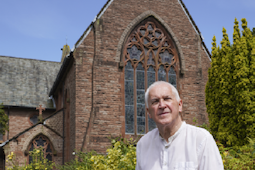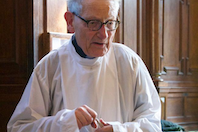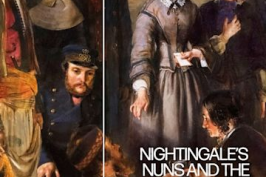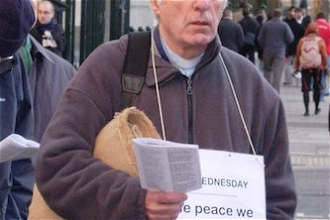Sunday Reflection with Fr Terry Tastard - 6 December 2009
In the reading today from the gospel of St Luke (3.1-6), the writer is very keen to give us the place and time of his narrative. The events he tells us about are carefully located, especially through a stream of names. It was during their time that John the Baptist received his vocation to prepare for the coming of the Messiah. We are told the name of the Roman Caesar at the time, we are told who was governor. We are told the names of the local tetrarchs or rulers.
That list of names should alert us to something. It tells us first of all that God does come into history. This is no remote God, loftily surveying the affairs of men. This is God who loves his creation, who challenges and inspires the human race. This is God who grieves over its sins and failures and yearns for its healing. This God is involved in the messy and sometimes painful events of the world. This God will come among us as Christ.
There is a second message in this list of names. The great and powerful figures named in the gospel today thought that they were at the centre of things. But actually, the real centre was the place where God was at work. John the Baptist would prepare the way and call on others to do the same; the Messiah would come, almost unheralded, known at first only to a few. But these events, hidden, little noticed, would reach to the furthest corners of the earth. News of God's initiative in Christ would penetrate even into the palaces of the powerful men named in the gospel. The same news would resonate down to every age and every land.
Finally, we notice that when John the Baptist was preparing for the coming of Christ, he did so by proclaiming repentance. Repentance means, of course, renewing our love of God and neighbour and turning away from whatever is sinful. It was the people of little social standing who came out to hear John the Baptist and it was as Jesus himself noticed the same people who seized the opportunity of new life (see Matt. 21.31-32). Perhaps there is something about power and prestige that makes it harder to admit your need of healing and new life. The humbler people could embrace the message; the big people could not. Today in our culture with its curious, mixture of cynicism and anxiety, it is just as hard to draw attention to the Messiah. We sometimes have the impression that like John the Baptist we are speaking in a wilderness, a spiritually dry place. But again, we
remember, if God had waited until the world was put to rights, Christ could never have come. He came precisely because it was necessary to put the world to rights.
Let us play our part as best we can. This Advent let us prepare for the coming of Christ by asking God that we may repent of whatever holds us back from a fuller knowledge of Christ. Above all, may God's grace dissolve any hardness of heart in us. We are encouraged by the prayer of St Paul that we hear in the second reading today from Philippians, when he prays that Christian people may increase in love for one another, grow in knowledge of Christ and always be able to perceive what is best. May God grant us this.
Fr Terry Tastard is parish priest (pastor) of Holy Trinity, Brook Green, in the Hammersmith area of London. His new book Ronald Knox and English Catholicism is published by Gracewing at £12.99 and is available on Amazon, from religious booksellers and from the publisher.





















